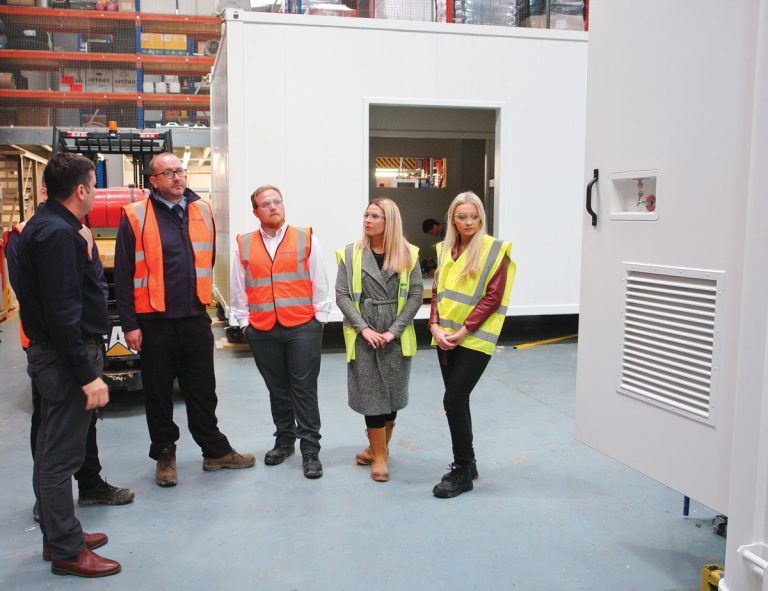We have to build more homes. That’s what we are being told on all sides. The refrain is that we face a housing crisis in which homes are becoming increasingly unaffordable and the only solution is to increase supply by building more. Well, the three sided relationship between housing supply and demand and price is a complicated one. What I want to discuss here is what would happen if we didn’t build more houses. What would the implications be if we became housing crisis deniers and took no steps to increase supply? What would its effects be on our economy and our society? What if we had no property investors or developers who wanted to make a genuine impact? For a start, although I’ve argued in the past that the relation between supply and price is complex and should be addressed on a regional basis rather than nationally, there’s no doubt that a complete failure to build, or at least to do more than replace housing stock, would turbo-charge price rises. In its recent report, Savils forecasts a UK average compound growth in house prices of just over 14% over the next five years. Clearly that has to depend on a number of factors, such as the state of the economy, levels of immigration and the effects of Brexit. When looking at Savil’s forecast we should also bear in mind that the number of new homes registered to be built in the UK in 2015 topped 156,000, which represented an eight-year high and a 7% year-on-year increase in NHBC new home registrations. This also marked 75% more new homes registered in 2015 than in 2009. If this kind of building level drives a 14% five-year price hike, then it’s safe to conclude that a choking off of this supply would result in a much greater rate of price acceleration. One direct result of this would be that people would be worse off. Higher house prices mean higher mortgage repayments. They also demand higher deposits from purchasers, which drives more people into the rented sector, in turn driving up rents. In 2013-14, tenants in rented accommodation paid an average of 47% of their net income in rent and once housing benefit was stripped out of income, average rents were more than half of average gross pay. Not surprisingly, in London the situation was even more acute. There rents were equal to 60% of tenants’ gross earnings with housing benefit, or 72% without it. Those paying mortgages weren’t committing so much of their income to accommodation, but repayments still equalled an average of 23% of their earnings after tax. If rising property prices lead to people having to pay even more for accommodation then they will see a corresponding reduction in their disposable incomes. This would have a serious knock-on effect for the whole economy. Even when exports are sluggish and productivity stagnant, the British shopper has kept our economic show on the road. Retail sales, at around £360bn a year, account for about 6% of the UK economy. That’s not something the country can afford to endanger, particularly in the run-up to Brexit. Of course, in the event of a struggling economy and soaring house prices, not everyone would be affected equally. Those who don’t own property would see their disposable incomes squeezed and living standards falling, with an ever receding prospect of home ownership. They would only be able to watch enviously as homeowners disappeared beyond their own horizons, sailing off to enjoy and to pass onto their children the fruits of a hugely inflated asset. Such inequality wouldn’t only be undesirable but would also probably not be sustainable. There would be social unrest and unstoppable political pressure to intervene in the market and to redistribute some of that capital wealth. Maybe this is unduly alarmist. It’s often said that we British get too hung-up over house prices and home ownership and that this is something that marks us off from our continental neighbours who are far more relaxed about renting. In fact, this is a myth. If you live in the UK, you are less likely to be a homeowner and more likely to rent than the average European. Nearly 71% of people in the 27 EU countries live in owner-occupied dwellings. The UK average was just below 68%, in 2011. In Europe, it ranges from 53.4%c in Germany to up to 96.6% in Romania. Surprisingly, the only significant European country where less than half the population are owner-occupiers is Switzerland. So, there is no particular British obsession with home ownership and, even if there was, it wouldn’t change the fact that rising property prices also mean rising rents. After food and drink, shelter is a fundamental human need and lack of reasonably easy access to it is likely to cause all kinds of social problems. We can see this at work in higher prices leading to a lower rate of household formation. In simple terms, this means more groups of young people or recent immigrants are sharing and young people who can’t afford to leave home as early as they might want to have to live with their parents for longer. The 2011 census was the first in a century in which the average size of households hadn’t fallen and there had been an increase in the proportion of households with more than two adults. This matters – not just for the sanity of parents – but because young people who stay at home are likely to delay starting a family. Although birth rates in Britain rose in the first decade of the new century they have since fallen back to the sorts of levels seen in the early 1990s. Just over 695,200 babies were born in England and Wales in 2014 – 21% below the peak of the 1960s baby boom. At the same time the population is becoming older, with the number of people over 75 rising by 89% in a generation and in











